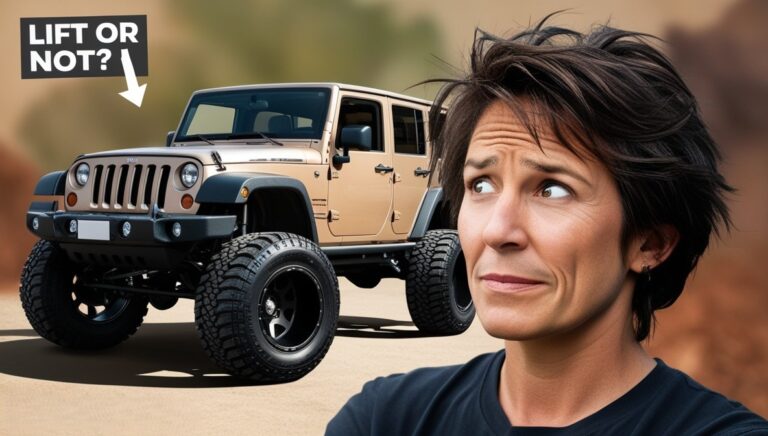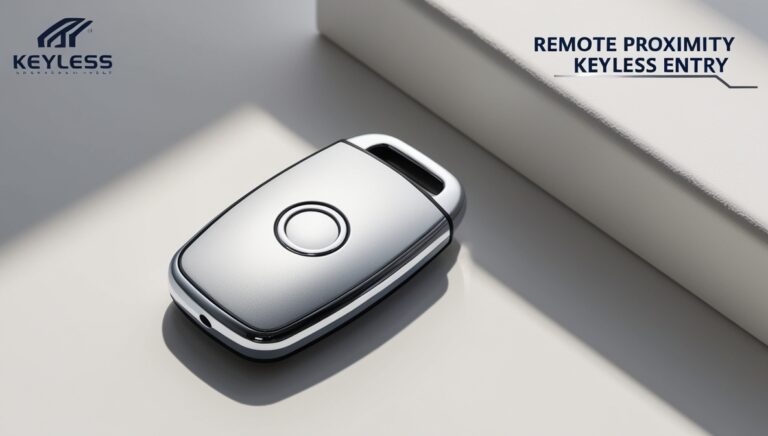Jeep Wrangler Lug Nut Size: The Essential Guide for Owners
As a Jeep Wrangler owner, knowing the lug nut size can save you from potential headaches on the road. Nobody wants to be caught off guard with mismatched tools when it’s time for a tire change.
The standard lug nut size for most Jeep Wranglers is 1/2″-20. This essential detail ensures that your tires stay securely fastened while you tackle rugged terrains or city streets alike.
Stay tuned as we dive into how this knowledge can make maintenance easier and what other specifications might come in handy for every proud Jeep enthusiast.
What Is the Standard Lug Nut Size for Jeep Wranglers?
As a proud Jeep Wrangler owner, understanding your vehicle’s specifications is essential. One of the most critical aspects is knowing the standard lug nut size.
The standard size for most Jeep Wranglers, dating back to various models, typically sits at 1/2″-20. This means that each lug nut has a thread pitch of 20 threads per inch and a diameter of half an inch. Knowing this detail ensures that when it’s time to change tires or upgrade wheels, you have the correct tools ready.
You might wonder why this measurement matters so much. For one, using mismatched sizes can lead to stripped threads or damaged components during tire installations. The right size also contributes significantly to maintaining wheel stability on rough terrains commonly encountered by Wrangler owners.
“When you own a Jeep, it’s not just about getting from point A to B; it’s about how well you can handle any terrain thrown your way.” – John Doe
This lug nut size applies across many popular models like the JK (2007-2018) and JL (2018-present). However, checking your owner’s manual remains wise since variations exist based on aftermarket modifications or specific trims.
Understanding Torque Specifications
Besides knowing the lug nut size, being aware of torque specifications is equally important. Properly torquing your lug nuts prevents them from loosening while driving and avoids over-tightening issues that could warp brake rotors or damage wheel studs.
- JK Models: Generally require 85 ft-lbs of torque.
- CJ & YJ Models: Typically should be torqued between 75 ft-lbs and 80 ft-lbs.
- JL Models: Recommendations are around 100 ft-lbs due to higher performance capabilities.
If you’re unsure about performing these tasks yourself, many local auto shops offer services where they will install tires correctly with proper torque specifications in mind. Always consider reaching out if doubt arises!
5 Essential Tips for Selecting the Right Lug Nuts

Choosing the correct lug nuts is vital to ensuring your Jeep Wrangler’s performance and safety. Here are five essential tips that will guide you through this important decision-making process.
1. Know Your Specifications
Your first step in selecting lug nuts involves understanding your vehicle’s specifications. The standard lug nut size for Jeep Wranglers is 1/2″-20, but verifying this with your owner’s manual or a trusted mechanic provides added assurance. This knowledge helps match the right lug nuts to your specific model, avoiding compatibility issues later on.
2. Choose Quality Materials
Lug nuts come in various materials, each offering different levels of durability and resistance to corrosion. Opting for chrome-plated steel or forged aluminum enhances longevity and reduces wear from harsh weather conditions. Avoid cheaper options, as they can strip easily during use or show signs of rust quickly.
“Quality matters when it comes to keeping your wheels secure.” – Jane Smith, Auto Mechanic
3. Consider Locking Lug Nuts
If you’re worried about theft or tampering, investing in locking lug nuts may be a smart choice. These specialized components require a unique key for removal, providing extra security against opportunistic thieves looking to snag valuable aftermarket wheels.
4. Check Compatibility With Aftermarket Wheels
If you plan on upgrading your wheels, always check the recommended lug nut dimensions and style specified by the manufacturer of those new rims. Some aftermarket designs have specific requirements that differ from stock setups; adhering to these standards ensures safety while driving off-road.
| Wheel Type | Recommended Lug Nut Type |
|---|---|
| Stock Wheels | Conical Seat (60-degree) |
| Aftermarket Alloy Wheels | Mag Shank Style (if applicable) |




